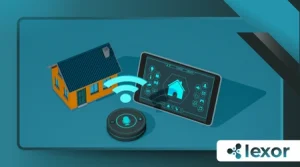The Role of Voice Assistants in Smart Homes

Voice assistants in smart homes have evolved from experimental gadgets to indispensable household managers.
These AI-driven tools—Amazon’s Alexa, Google Assistant, and Apple’s Siri—now orchestrate lighting, security, entertainment, and even grocery orders with simple voice commands.
But their impact goes beyond convenience. They’re reshaping how we interact with technology, making homes more intuitive, efficient, and responsive.
Yet, as adoption grows, so do concerns—privacy risks, interoperability issues, and the question of whether we’re becoming too reliant on AI.
This deep dive explores how voice assistants in smart homes are transforming domestic life, the challenges they face, and what the future holds for this rapidly advancing technology.
The Evolution of Voice Assistants: From Novelty to Household Essential
A decade ago, voice-controlled technology was a novelty—limited to setting timers or playing music. Today, voice assistants in smart homes manage entire ecosystems, from adjusting thermostats to locking doors remotely.
The shift from basic commands to contextual understanding marks a major leap. Early iterations required rigid phrasing (“Alexa, turn on the lights”), but modern systems process natural language (“Alexa, it’s too dark in here”).
According to a 2024 Statista report, 47% of U.S. households now use at least one voice-controlled device, a number expected to surpass 60% by 2026.
This surge reflects not just adoption but dependence—many users now struggle to imagine life without them.
Take, for example, smart kitchens. A simple “Hey Google, preheat the oven to 375°F” eliminates manual input, while integrations with grocery apps allow real-time inventory checks (“Alexa, do I need milk?”).
The next phase? Predictive automation. Instead of waiting for commands, future assistants will anticipate needs—like lowering blinds at sunset or suggesting energy-saving adjustments.
How Voice Assistants Enhance Smart Home Efficiency
The true power of voice assistants in smart homes lies in their ability to streamline routines. Rather than juggling multiple apps or remotes, users control everything through speech.
++What Is VR Training and Why Is It So Effective?
Consider morning rituals. A single phrase—“Good morning, Siri”—can trigger a cascade of actions: raising smart blinds, brewing coffee, playing news briefings, and adjusting the thermostat.
This eliminates friction, turning complex sequences into effortless interactions.
Energy management is another key benefit. Voice commands like “Alexa, optimize energy usage” can sync with smart meters, turning off unused devices and shifting heavy loads to off-peak hours.
Studies show homes with voice-controlled automation reduce energy waste by up to 12% (Energy Star, 2024).
For families, these systems simplify coordination. Shared shopping lists, voice-activated reminders (“Don’t forget soccer practice at 5”), and even homework help (“Hey Google, define photosynthesis”) make daily life smoother.
Yet, efficiency isn’t just about speed—it’s about accessibility. Elderly or disabled users gain independence through hands-free control, proving that voice assistants in smart homes aren’t just convenient; they’re transformative.
Security and Privacy: The Trade-Offs of Always-Listening Tech

While voice assistants offer unmatched convenience, their always-on microphones raise valid concerns. Who’s listening? Where is data stored? Could hackers exploit these devices?
Major providers have taken steps to address fears. Apple’s Siri now processes most requests locally, minimizing cloud storage.
Amazon introduced a “voice deletion” feature, letting users erase recordings automatically. Still, skepticism persists—especially after incidents like accidental recordings being sent to third parties.
++Top Benefits of Smart Home Automation You Should Know
The dilemma is clear: the more personalized the assistant, the more data it requires. For instance, adaptive lighting preferences or grocery habits rely on usage history. Are users willing to trade privacy for customization?
Security-wise, voice authentication adds a layer of protection. Banks like Chase now allow voice assistants in smart homes to verify identities for balance checks—but is that enough to prevent impersonation?
The future may lie in hybrid models: offline processing for sensitive tasks, with optional cloud integration for advanced features. Until then, users must weigh convenience against potential exposure.
Interoperability: The Battle Between Ecosystems
One major hurdle for voice assistants in smart homes is fragmentation. Amazon’s Alexa dominates market share, but Google’s ecosystem integrates better with Android, while Apple’s HomeKit prioritizes iPhone users.
This divide forces consumers to choose sides. A Nest thermostat works flawlessly with Google Assistant but lacks full functionality with Alexa.
Similarly, Ring doorbells sync best with Amazon’s ecosystem, leaving Apple users with limited controls.
Matter, the new universal smart home standard, promises to bridge these gaps. Already, brands like Philips Hue and Yale Locks support Matter, enabling cross-platform compatibility.
However, adoption remains slow—legacy devices still outnumber compatible ones.
For now, users must navigate this maze carefully. Investing in a single ecosystem ensures smoother operations but limits flexibility.
Will universal standards eventually prevail, or will tech giants keep their walled gardens?
The Future: Predictive AI and Hyper-Personalization
Tomorrow’s voice assistants in smart homes won’t just obey—they’ll anticipate. Machine learning enables them to study routines, predict needs, and act preemptively.
Imagine your home noticing you always lower the thermostat at 10 PM and doing it automatically. Or your assistant suggesting a grocery run because it knows you’re out of eggs.
Read more: Home Security: The Best Smart Home Devices for 2025
This shift from reactive to proactive assistance mirrors having a personal butler—one that learns preferences without constant input.
Companies like Samsung are already testing AI that analyzes sleep patterns to adjust bedroom environments.
However, this raises ethical questions. How much autonomy should we grant AI? Should it make decisions without explicit approval? The line between helpful and intrusive is thin.
Another emerging concern is the potential for voice spoofing, where bad actors could mimic authorized users’ voices to gain access to smart home systems.
While current voice recognition systems use sophisticated biometric markers to verify identity, researchers at the University of Chicago demonstrated in 2024 that AI-generated voice clones could bypass some security measures with just a few seconds of sample audio.
This vulnerability becomes particularly troubling when considering voice-authenticated financial transactions or home security controls.
Manufacturers are responding with multi-factor authentication options, such as requiring a secondary PIN for sensitive commands like “unlock the front door.”
Yet as voice synthesis technology advances, the arms race between security measures and potential exploits will likely intensify, forcing users to remain vigilant about what permissions they grant to their voice-controlled systems.
Conclusion: A Voice-Controlled Future, But at What Cost?
Voice assistants in smart homes have undeniably revolutionized modern living. They save time, enhance accessibility, and simplify complex tasks—making them indispensable for millions.
Yet, challenges remain. Privacy concerns, ecosystem wars, and over-reliance on AI demand careful consideration. As technology advances, users must balance convenience with control.
The next decade will determine whether these assistants remain tools or evolve into autonomous home managers. One thing’s certain: the smart home of 2030 will be unrecognizable compared to today’s.
Frequently Asked Questions (FAQs)
Q: Are voice assistants always listening?
A: Yes, but only for wake words (e.g., “Alexa”). Recordings typically start after activation, though privacy settings can limit data storage.
Q: Can voice assistants work without Wi-Fi?
A: Basic commands may function, but most features require internet access for cloud processing.
Q: Which is the most secure voice assistant?
A: Apple’s Siri leads in privacy due to on-device processing, while Google and Amazon rely more on cloud data.
Q: Will Matter solve compatibility issues?
A: Eventually, but full adoption will take years as manufacturers update devices.
Q: Can voice assistants recognize multiple users?
A: Yes! Most distinguish voices for personalized responses (e.g., calendar alerts or music preferences).
